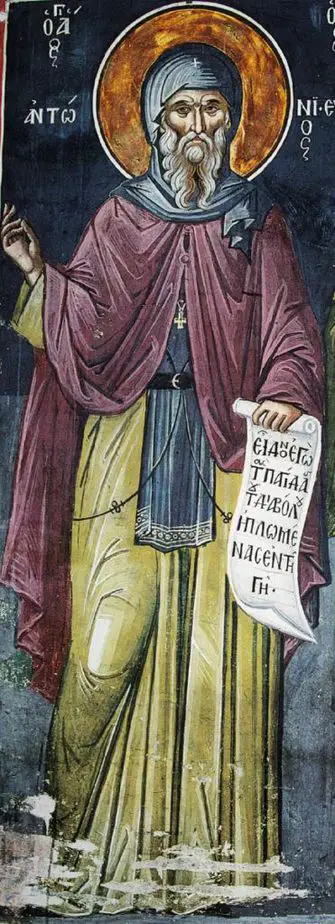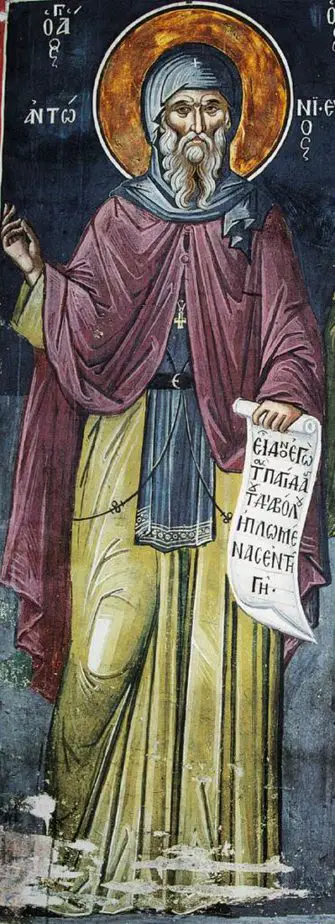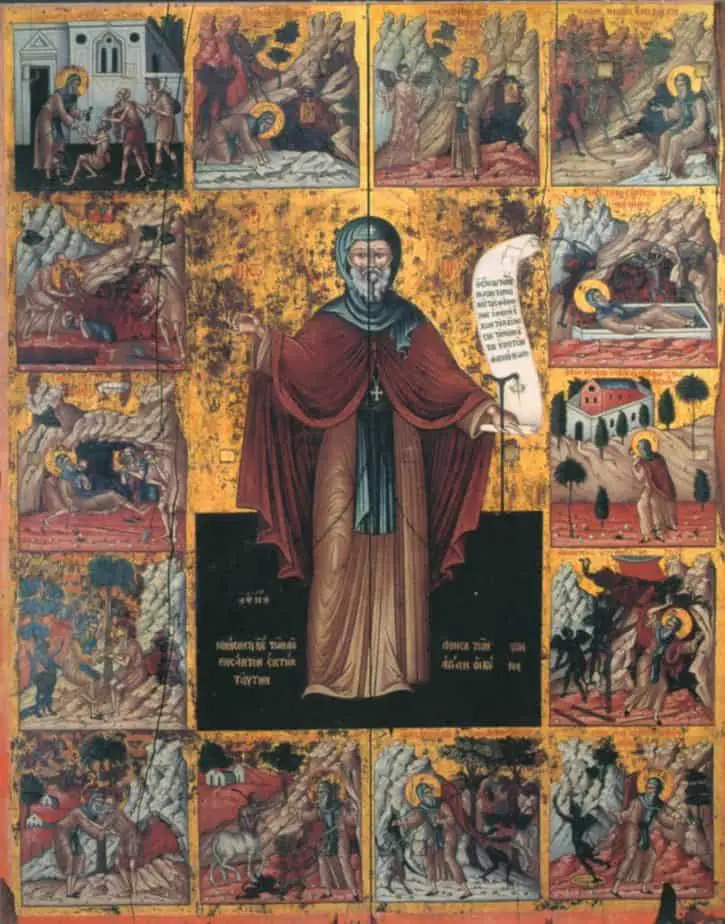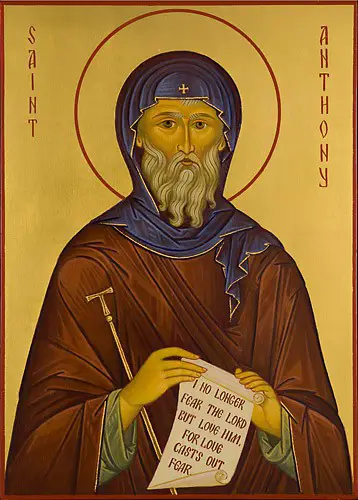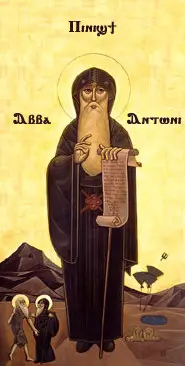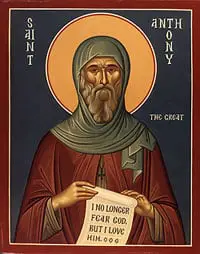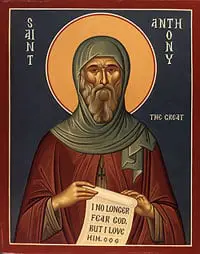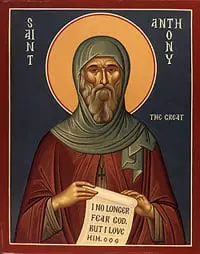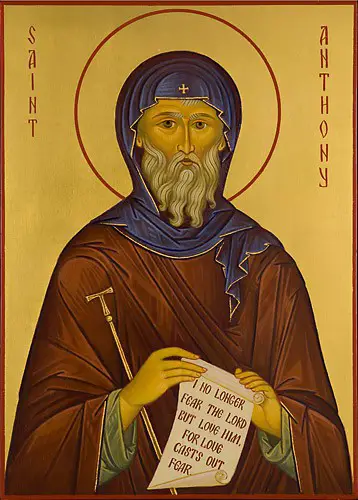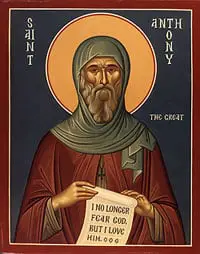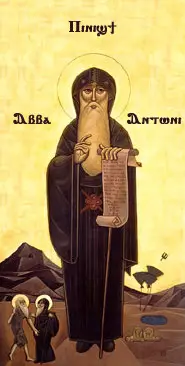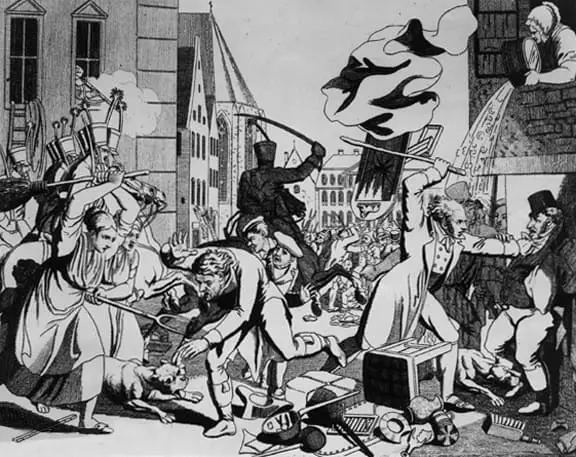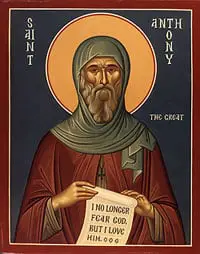. . .For once, when about to eat, having risen up to pray about the ninth hour, he perceived that he was caught up in the spirit, and, wonderful to tell, he stood and saw himself, as it were, from outside himself, and that he was led in the air by certain ones. Next certain bitter and terrible beings stood in the air and wished to hinder him from passing through. But when his conductors opposed them, they demanded whether he was not accountable to them. And when they wished to sum up the account from his birth, Antony’s conductors stopped them, saying, ‘The Lord has wiped out the sins from his birth, but from the time he became a monk, and devoted himself to God, it is permitted you to make a reckoning.’ Then when they accused him and could not convict him, his way was free and unhindered. And immediately he saw himself, as it were, coming and standing by himself, and again he was Antony as before. Then forgetful of eating, he remained the rest of the day and through the whole of the night groaning and praying. For he was astonished when he saw against what mighty opponents our wrestling is, and by what labours we have to pass through the air. And he remembered that this is what the Apostle said, ‘according to the prince of the power of the air [Ephesians 2:2.]’ For in it the enemy has power to fight and to attempt to hinder those who pass through. Wherefore most earnestly he exhorted, ‘Take up the whole armour of God, that you may be able to withstand in the evil day [Ephesians 6:13],’ that the enemy, ‘having no evil thing to say against us, may be ashamed [Titus 2:8].’ And we who have learned this, let us be mindful of the Apostle when he says, ‘whether in the body I know not, or whether out of the body I know not; God knows [2 Corinthians 12:2].’ But Paul was caught up unto the third heaven, and having heard things unspeakable he came down; while Antony saw that he had come to the air, and contended until he was free.

